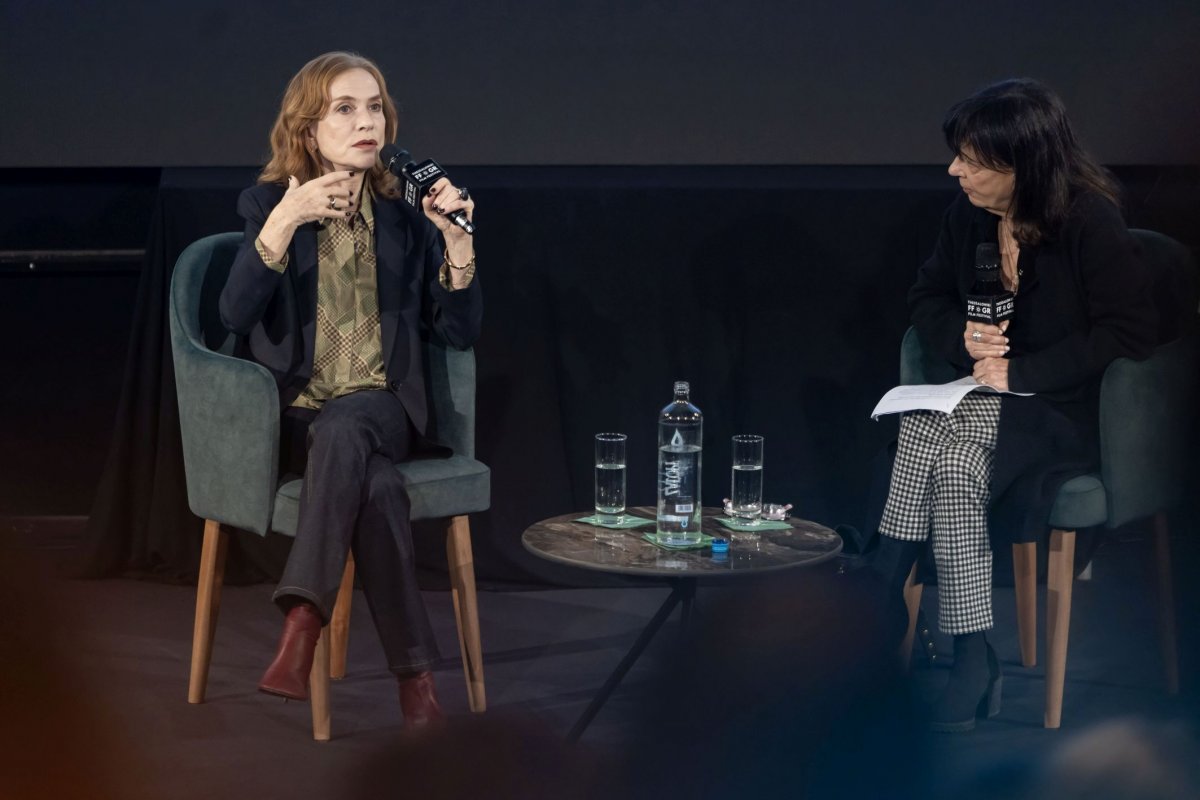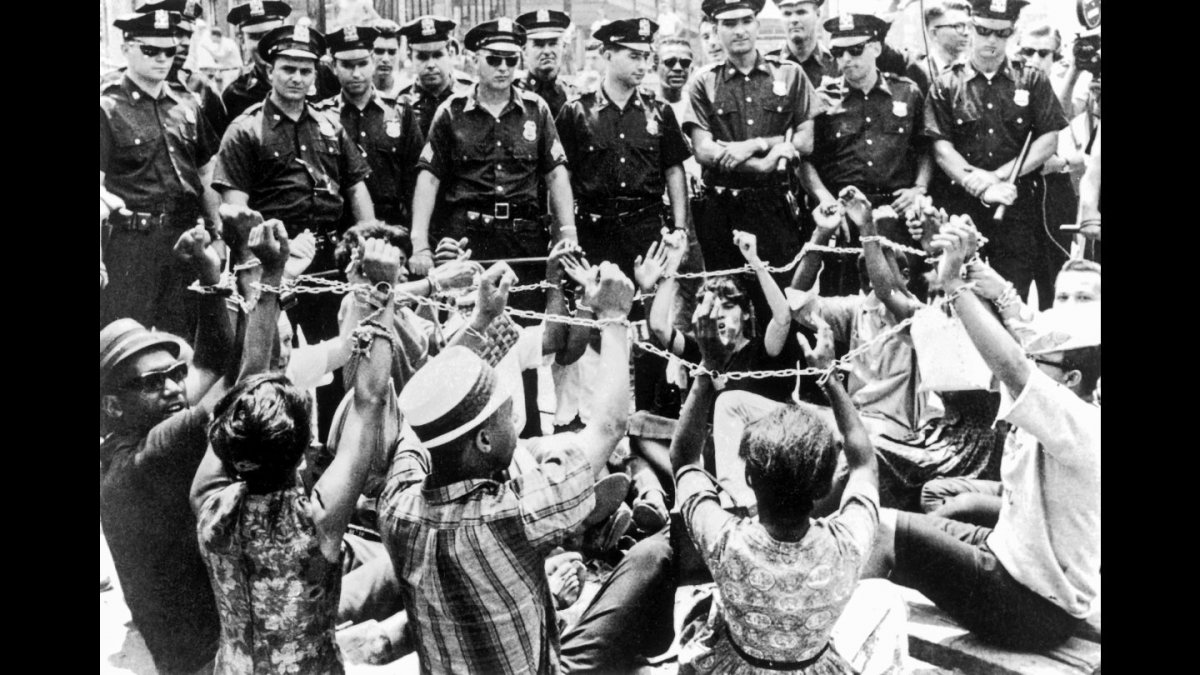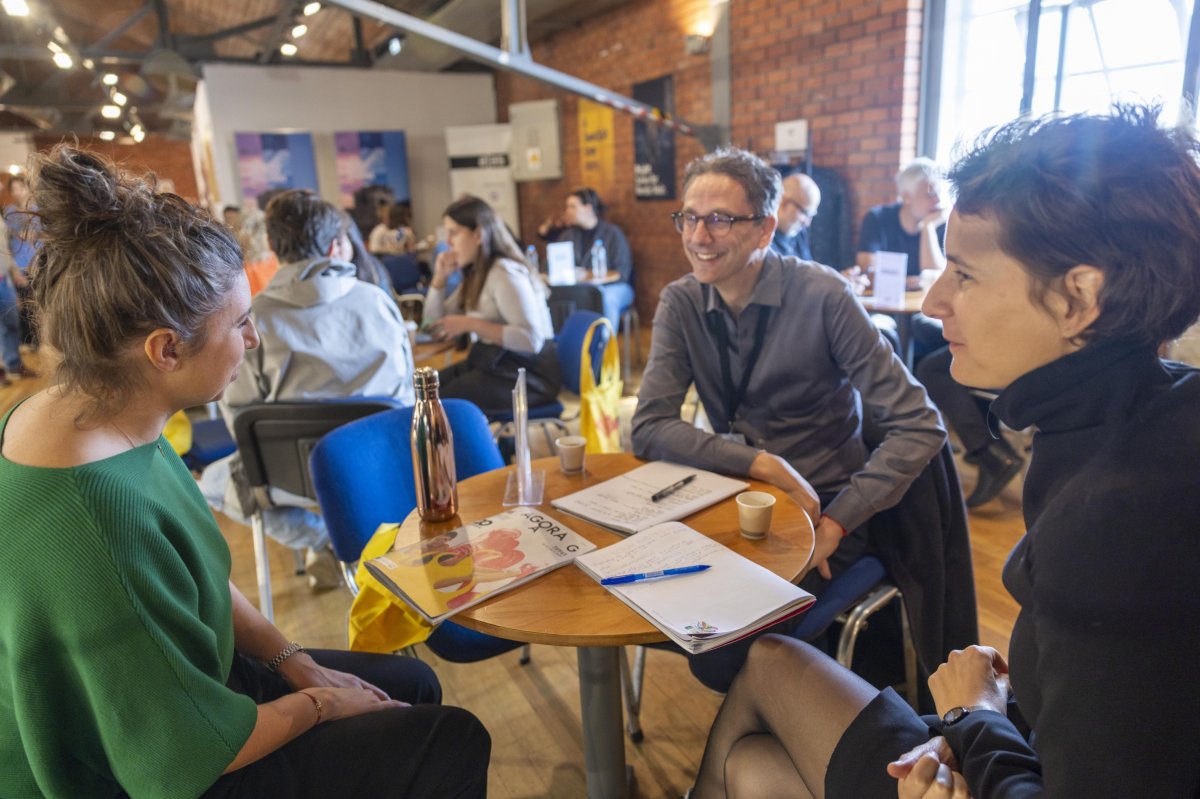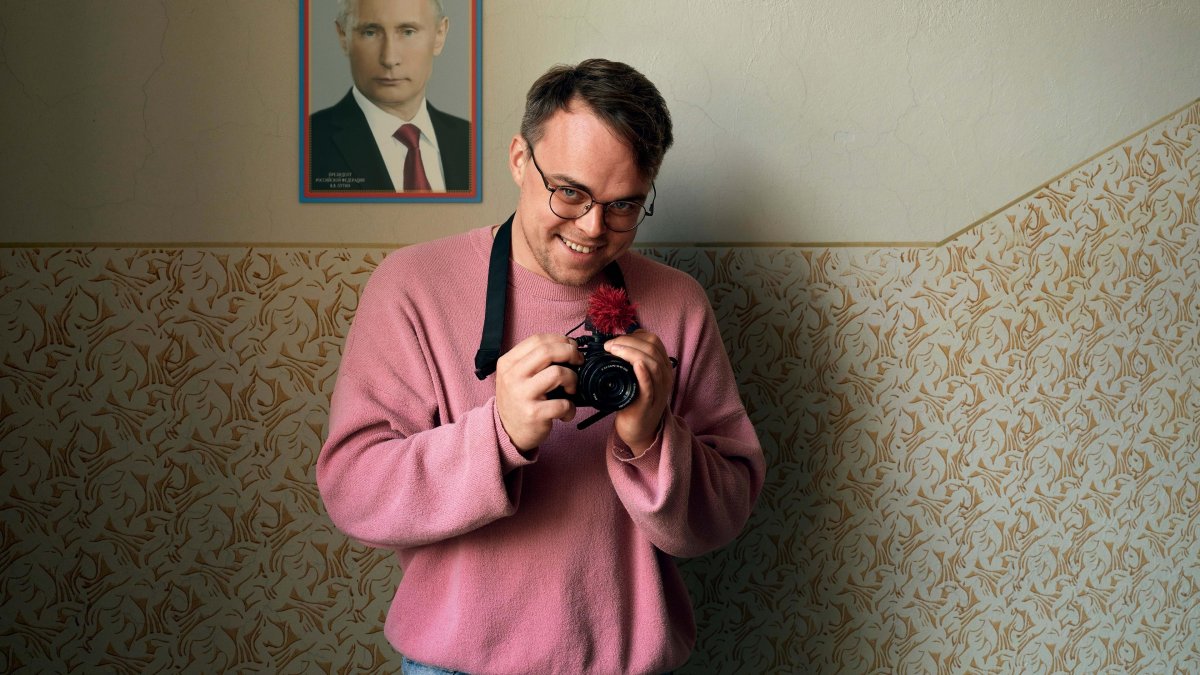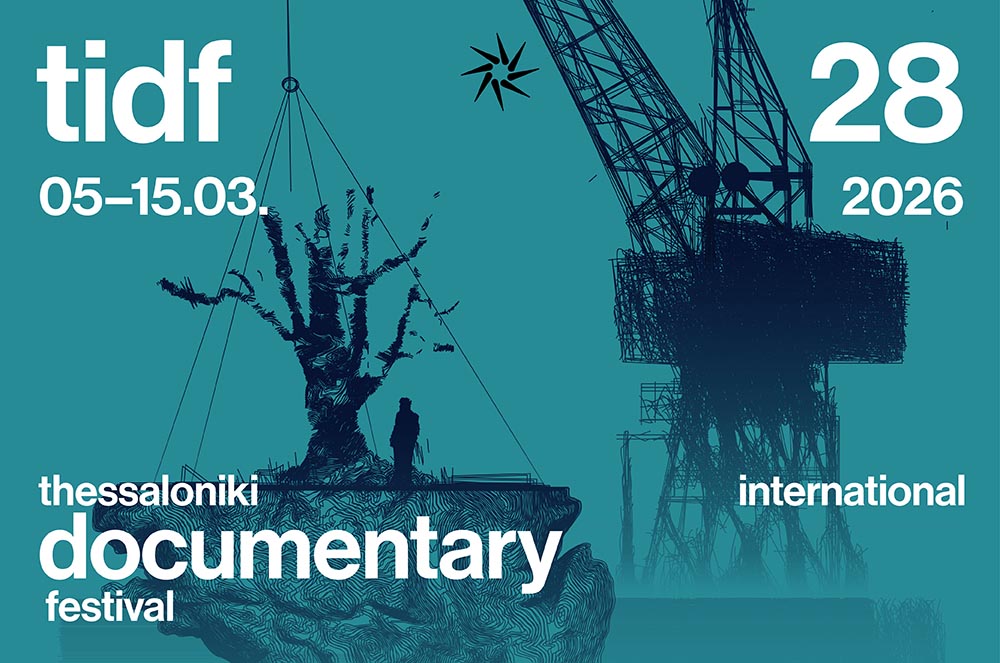The audience of the 66th Thessaloniki International Film Festival had the opportunity to attend a fascinating masterclass delivered by the remarkable star of French and world cinema, Isabelle Huppert, the guest of honor at this year’s edition, on Monday, November 4th, at the John Cassavetes theater. The discussion, which centered on the acclaimed actress’s path in theater and film, her collaborations with iconic directors, and her portrayal of demanding roles throughout her long and prolific career, was moderated by author and poet Ersi Sotiropoulou.
Welcoming both the audience and Isabelle Huppert, the Festival’s General Director, Elise Jalladeau, stated: “Beyond all doubt, there is no artist and actress more fearless and talented than the one we have the honor and pleasure of welcoming to Thessaloniki this year for a retrospective screening of just a small portion of her multifaceted and extensive body of work. Isabelle Huppert is bold and courageous, and her entire career has been marked by successive triumphs, as the list of awards she has garnered is truly staggering.”
“It’s a great honor to have you here with us today. You are a symbol, a role model as an artist,” Ersi Sotiropoulou remarked while welcoming Huppert. The radiant actress returned the kind words, before greeting the audience at the packed theater. “I’m very glad that I can share these moments with Ersi. Of course, I’d like to extend all these compliments right back to her. You are lucky here in Greece, you have a truly remarkable author,” she initially noted.
At the beginning of the discussion, Isabelle Huppert tried to recall the first time she found herself in front of the camera lens: “I must have been about four years old. It was my father’s camera. I don’t remember my first professional experience. It was most probably a secondary role in a television film; however I cannot recall the impression it left. I never really differentiated acting as it is performed across theater and cinema. From early on, I worked in stage productions with incredible people, such as the legend of German theater Peter Zadek, together with my sister, Caroline. The setting felt quite intimate. More demanding roles came along the way, alongside Romeo Castellucci for example. However, I never made a distinction between the two. My impression -as well as that of many spectators- is that a certain fluidity exists between the two. Theater is often exhausting, both physically and mentally. As for acting, it demands complete awareness and constant focus because every single movement can be seen. If you manage to get over the discomfiture this causes at the beginning, theater is wonderful. Whether I’m alone on stage or sharing it with the other actors, the audience disappears in a way, and an imaginary world is born, in which a sense of solitude reigns. It’s a wonderful feeling. You can’t dwell on the fact there is an audience; you just have to live the experience as intensely as you can.”
The actress then referred to Sarah Kane’s play, 4.48 Psychosis. “There is an abstract element in certain roles, something contrary to naturalism and realism. This is also the case with Psychosis, which is a truly special production. Sarah Kane committed suicide a year after writing the play. The director I worked with at that time was equally radical in his approach, given that I spent two hours sitting motionless on stage. Theater often makes me think about how the world came into being. At first, there is only a stage, and gradually, everything else begins to emerge. The world is empty, vacant, and slowly it unfolds into an entire universe. Some members of the audience felt uneasy as the performance evoked a feeling of impending doom. There was a lurking sense of violence, and I was basking in it. The lighting in the theater made me feel as if I were embarking on a far away journey.”
Furthermore, Huppert spoke about the film The Ceremony (1995), one of the highlights of her acting career: “Claude Chabrol’s The Ceremony is an important film. The conflict between good and evil dominates, while the element of class struggle is also extremely intense. Inequalities can lead to explosive violence, and the film attempts to help us understand this, without absolving it. At the same time, it also has an ironic dimension. It is a film with sharpness and humor, but it also carries tragic elements. Seeing is difficult, but I have fallen in love with it. I remember that Chabrol was also a guest of honor at the Thessaloniki International Film Festival. I have loved all the films crafted by him that I’ve participated in for it is never burdensome to speak about the violence of feelings, the violence of coexistence. Chabrol is deeply political, as is cinema by its nature. He has a far-sighted perception, and through his films, has offered a biting critique about the world we live in.”
Isabelle Huppert also referred to her collaboration with Michael Haneke. “Seeking out likable people is not my aim. I don’t think Haneke would care whether I find him likable either. He is a tremendous director, who creates constant tension in his films. His greatest works are the ones keeping you on the edge of your seat, creating suspense, otherwise interest fades. Haneke has managed to touch upon difficult and brutal matters. He is a director who seeks intensity, tragedy. In The Piano Teacher (2001), there is a scene where I’m standing in front of a window, with my back to the camera. It’s a scene without prose, and yet it says so much.”
Subsequently, she emphasized the groundwork required prior to each performance. “I have not read Konstantin Stanislavsky’s books, but I find his insights particularly interesting. I can’t say I follow a certain methodology. Perhaps, I have inherited one, without making a conscious decision. I like to think I don’t portray a character, but a situation. I embody sentiments. And all this may possibly be rooted in a contemporary style of acting, which contrasts with an older model focused on the characters. Cinema is evolving. In the past, characters were divided into good and evil. Nowadays, the boundaries between the two are not that clear.”
Shortly before concluding the masterclass, Isabelle Huppert mentioned how important it is for actors to have a sense of freedom. “Playwright Alfred Jarry supported the idea that we must ‘kill theater.’ We cannot be beholden, or limit ourselves to a single theatrical convention; we must transcend it. It is the only way to be free. And the truth is that we should feel free both in theater and cinema. I recently read one of Ersi’s books, and I thought it was remarkable as it manages to do exactly that; to break free from the conventions of a particular era and convey a person’s state of consciousness in a manner most incredible. This freedom requires a lot of effort; it doesn't just happen by magic. In my case, it's the director who has to urge me to feel free. At that moment, I can't think, I have to feel. I ignore everything, and that is perhaps what makes me more penetrating. I am useful to the director. I ignore the situation, and that is what makes me available. Perhaps this is my defining attribute.”
The discussion came to a close after a Q&A with the audience. Isabelle Huppert spoke about the differences she sees now compared to the time she made her film debut. “In reality, there is no difference. Everything has changed, and yet nothing has changed. For example, Ersi once wrote with pen and paper, whereas now she writes on the computer. Similarly, in my case, there is a part of the process that remains unaltered over the course of time.” Moreover, she referred to the overwhelming negative critical reception to Michael Cimino’s film Heaven's Gate: “It was a deeply personal film that didn’t adhere to the conventions of traditional storytelling. Filming lasted eight months and when the film was finally released, it wasn’t what people expected to see. It also carried a political message that was difficult to comprehend. However, I feel that time has vindicated it. Of course, it was much too late for Cimino, he couldn’t recover from the trauma. A film is defined equally by its success and failure.”
As for the books that were a point of reference for her, Isabelle Huppert noted: “I couldn't imagine my life without reading books, seeing films, or going to the theater. It's an extraordinary privilege, and the reality is that life is very difficult if you don't have that opportunity.” Concluding, and in response to a question regarding the mechanisms that help her be more “present” in the moment, the celebrated French star explained: “Once we must step into a role, there is no time to think. However, before that point, I consider a lot of things, as acting requires thought. But when it comes to performing, we cease thinking. Everything is about the present, and we must be confident. It's sort of like a contract we sign with the director. If doubts start creeping in, things get difficult.”


